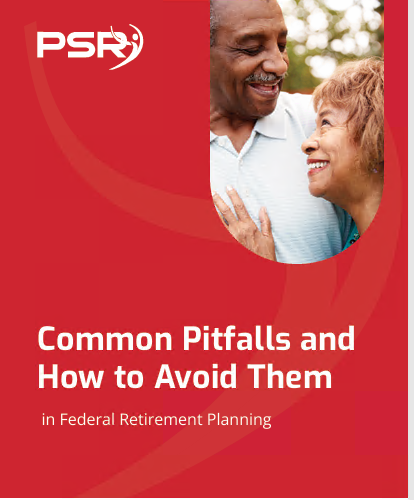Key Takeaways:
- If you’re a federal employee close to retirement, key policy changes this year can directly impact your benefits and timing.
- Stay informed on new regulations, health coverage options, and financial planning strategies to maximize your retirement.
Major Updates for Federal Employees Nearing Retirement
If you’re thinking about retirement and you’re a federal employee, this is a crucial time for you. There have been several changes this year that could directly impact your benefits, retirement timing, and overall financial security. Whether you’ve already got your retirement date circled on the calendar or you’re still weighing your options, understanding these new policies can make all the difference.
One thing is clear: waiting too long or missing key updates could cost you. Let’s go over some essential changes you can’t afford to ignore.
Are Your Retirement Benefits Changing?
- Also Read: Divorce and Your Federal Pension—What Happens When You Split Assets and How It Could Affect Your TSP
- Also Read: What Happens to Your Federal Benefits After Divorce? Here’s the Lowdown
- Also Read: The Best FEHB Plans for 2025: Which One Fits Your Lifestyle and Budget the Best?
This year, we’ve seen changes to several areas of federal employee retirement benefits. These include adjustments to the Federal Employees Retirement System (FERS) and Civil Service Retirement System (CSRS). Whether you fall under FERS or CSRS, staying updated on these modifications is crucial.
One of the most significant updates involves the cost-of-living adjustments (COLAs). If you’re relying on your pension income, the annual COLA increase is designed to help keep up with inflation. However, recent changes have shifted the way these adjustments are calculated. FERS employees may receive a smaller COLA compared to CSRS retirees, which could affect long-term financial plans for those nearing retirement. Being aware of these differences allows you to recalibrate your financial strategy as needed.
Another area to keep in mind is the Thrift Savings Plan (TSP), your government-sponsored retirement savings program. TSP fund performance and contribution limits are always something to watch, and this year is no exception. New contribution limits could impact how much you can save, and any market volatility may affect your investments. If you haven’t already, check on the latest fund performance and make sure your portfolio aligns with your retirement goals.
When Should You Start Considering Retirement?
Timing is everything, especially when it comes to retirement. With the changing landscape of benefits, knowing when to retire can save you both money and stress. You might be wondering, “Should I retire this year, or wait a little longer?”
The answer depends on various factors, including your age, length of service, and financial needs. For instance, if you’re eligible for FERS immediate retirement but haven’t reached the minimum retirement age (MRA), you may need to decide whether to take reduced benefits early or wait for full benefits. On the other hand, those approaching CSRS retirement might have more flexibility but should still weigh the long-term impact of potential policy shifts.
Additionally, pay attention to any open windows for voluntary early retirement (VERA) programs. These programs allow eligible employees to retire early with full benefits, which could be an ideal opportunity if you’re ready to exit the workforce. However, such windows are often limited, so it’s essential to stay informed and act quickly if an opportunity arises.
How Is Healthcare Affected by Recent Changes?
Healthcare is one of the biggest concerns for federal employees nearing retirement. Making sure you have the right coverage at the right price is key to ensuring a smooth transition out of the workforce. With each passing year, new rules and premiums could affect your healthcare choices. Federal Employees Health Benefits (FEHB) plays a crucial role in this decision.
This year, there’s been talk about potential changes in premium costs and plan offerings under the FEHB program. Understanding what these shifts could mean for your post-retirement healthcare is critical. Should you choose to keep FEHB in retirement, your premium rates and out-of-pocket costs might differ, depending on the plan you’re currently enrolled in.
There’s also the question of Medicare coordination. If you’re nearing 65 and eligible for Medicare, you’ll need to decide how to integrate FEHB with Medicare Part A and Part B. Some retirees choose to keep both, while others may switch to Medicare entirely. Making the right choice depends on how much coverage you want and your current health needs.
How Will Your Social Security Benefits Fit In?
If you’re eligible for Social Security, deciding when to claim benefits is another critical aspect of your retirement plan. Social Security benefits are based on your work history and the age at which you claim them. Delaying Social Security can increase your monthly payments, but this decision should align with your broader financial goals.
If you are a FERS retiree, you’ll need to factor in the FERS Supplement, which is a bridge payment designed to fill the gap between your retirement date and when you become eligible for Social Security at age 62. Keep in mind that this supplement goes away once you start receiving Social Security, so timing is everything.
This year, Social Security recipients are also likely to see a small COLA increase, but like the FERS COLA, it might not fully keep pace with inflation. If you’re a federal employee eyeing retirement in the next year or two, be sure to weigh these factors when planning how to maximize your income streams.
Is Financial Planning More Important Than Ever?
There’s no question—financial planning is more critical than ever if you’re nearing retirement as a federal employee. You might have a pension, TSP, Social Security, and other sources of retirement income, but without a plan to bring them all together, you could face unexpected financial gaps.
Consider meeting with a financial advisor who specializes in federal employee benefits to help you navigate these changes. A professional can help you optimize your retirement income streams, ensure your healthcare is properly aligned, and guide you in making strategic decisions about when to retire.
Additionally, if you’re thinking about relocating during retirement, don’t forget that state taxes can significantly impact your retirement income. Some states are more favorable than others when it comes to taxing pensions and Social Security, so it’s worth considering how your relocation plans might affect your budget.
What Can You Do Right Now to Prepare?
The good news is that there are plenty of proactive steps you can take to ensure you’re ready for retirement, no matter when you decide to retire. Here are a few things you can do right now:
- Review your retirement benefits. Make sure you understand your current benefits under FERS or CSRS, including your pension and TSP.
- Check healthcare options. Look at your FEHB plan and determine how it coordinates with Medicare if you’re nearing 65.
- Maximize TSP contributions. Ensure you’re contributing enough to your TSP to take full advantage of any employer matching and new contribution limits.
- Review your retirement income strategy. Make sure you’ve thought about how your pension, Social Security, and any other income streams will fit together.
- Stay informed. Sign up for federal employee newsletters or follow reliable sources to keep up with any new developments or policy changes.
The Future of Your Retirement Is in Your Hands
As you edge closer to retirement, staying informed and proactive is the best way to safeguard your financial future. This year’s changes in retirement benefits, healthcare options, and financial planning tools mean that preparation is more important than ever. Don’t let the latest updates slip through the cracks—make sure you’re ready to take control of your retirement when the time is right.













